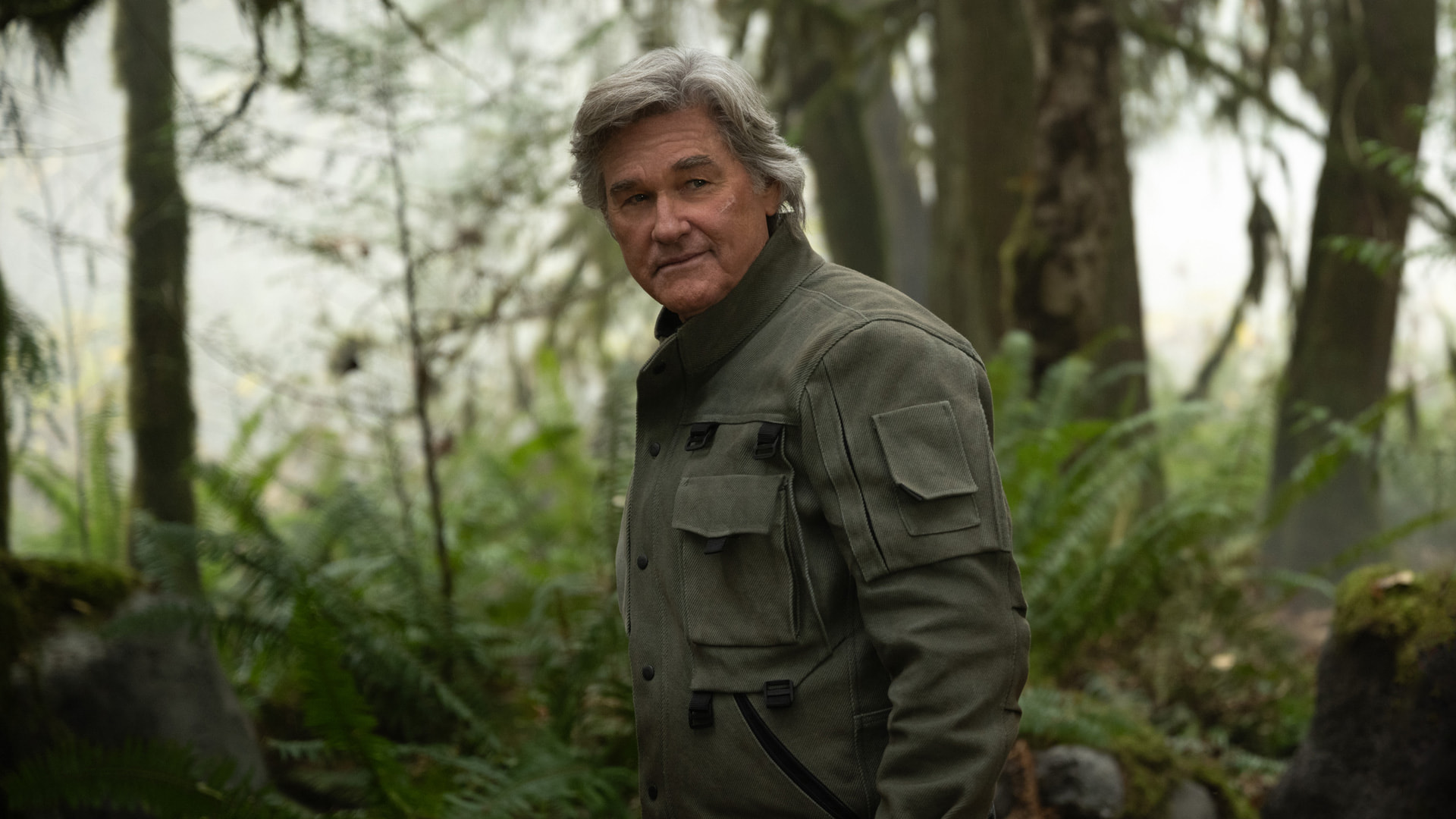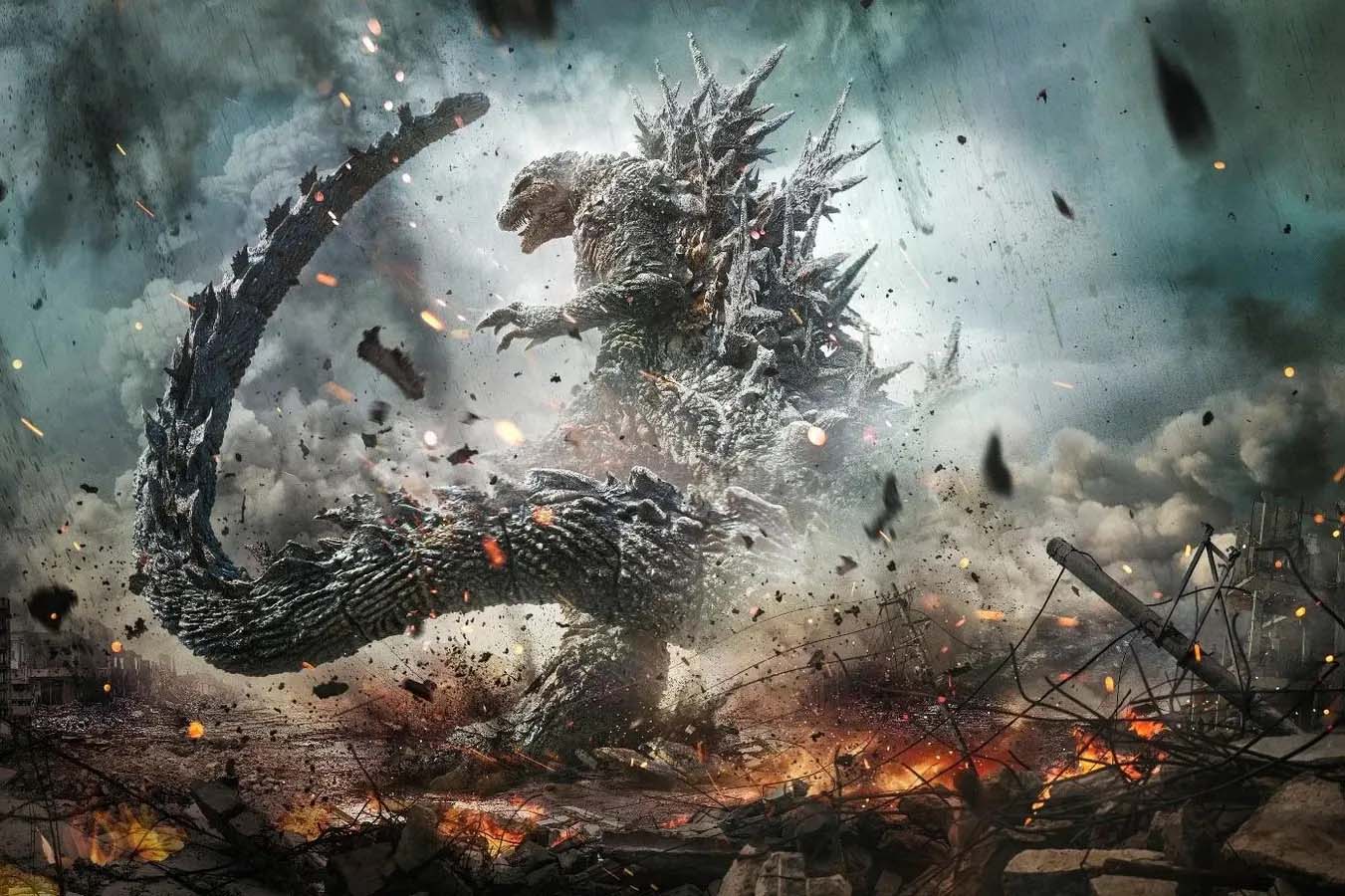A siren is blaring somewhere in the distance, a high-pitched sound that nobody pays attention to anymore. Twisted metal, shattered glass and debris are all that is left of a city block full of skyscrapers. Cars flipped, people crying, and a scene of destruction and devastation are the only things that remain from what was once a bustling city. Fire smoulders among the wreckage, sending billows of smoke into the ashen sky as the night air is occasionally pierced by the cries of the injured and dying.
Suddenly, a deafening roar covers everything, as the ground trembles. You look up and with mounting terror, you see a giant monster figure silhouetted by the light of a bright moon. A cry of terror climbs up your throat but only a single word escapes your mouth:
“Gojira”.
Congratulations, you found yourself in a kaiju movie! Kaiju is a Japanese term meaning “giant monster” and they have always been present in Japanese film history. A giant monster, usually rising from the depths of the ocean to level cities as a punishment for people destroying the environment in some way. As this was Japan in the 50s, radiation played a huge part in the kaiju mythos. The best-known kaiju is of course Godzilla, or Gojira in Japanese, a combination of the words gorira (gorilla) and kujira (whale). Kaiju films are making a comeback now for Western audiences, following the massive success of 2014’s Godzilla. Recently Netflix acquired the rights to Godzilla:Minus One, the newest film to come out of Japan in the kaiju genre. The move paid huge dividends for Netflix as it became a – sorry – monster hit. Here are some other films and series you can find on other platforms!
Pacific Rim (Prime Video)
The only thing you need to know about Pacific Rim is there’s a scene where a giant mecha beats up a giant monster using an oil tanker as a baseball bat. If that doesn’t get you to watch a movie, I honestly don’t know what will.
The story: Sometime in the near future, humanity is under attack when huge kaiju start to emerge from the ocean and attack coastal cities. Nations pool their resources to build giant mechs, robots that are piloted by humans. The plan works for a time but soon the mech defence is sidelined in favour of constructing giant walls to keep the kaiju out.
Charlie Hunnam stars as Raleigh Beckett, a former mech pilot, who lost his brother during a kaiju attack and has since abandoned the programme. Like all good, gruff protagonists, some years later he is pulled back in for one last job, as the mech programme is ready to be decommissioned. Queue city-wide rampage and mayhem. Glorious.
Monarch: Legacy of Monsters (Apple TV+)
For Western audiences, Godzilla and the whole kaiju genre made a strong comeback in 2014 when Godzilla was released. The Kaiju genre never really died in Japan because filmmakers there treated the franchise with respect and acknowledged its cultural significance: Godzilla is not just a giant monster that levels cities for fun but rather a force of nature. It is not to be defeated, it is to be dealt with and acknowledged. Much like a hurricane or a tsunami, there’s no stopping it. There’s surviving it.
This was something Gareth Edwards, the director of Godzilla back in 2014, understood well and relayed it through his film. The result was phenomenal. The movie was a huge success, spawning a whole cinematic universe (now called MonsterVerse) and ushering in other iconic monsters like King Kong. From that cinematic universe spawned a television show on Apple TV+, focused on the secretive organisation that monitors the kaiju, called Monarch.
In the series, a school teacher from San Francisco whose students died during a Godzilla attack travels to Japan to wrap up her father’s business. There she learns that she has a half-brother and that her dad was secretly employed by Monarch. She teams up with Monarch’s retired co-founder (played by Kurt Russel) and sets on a global adventure to uncover the secrets behind the organisation. There are action sequences, Godzilla cameos and all-around fun mixed in with some drama. The series has been renewed for a second season and several spin-offs have been greenlighted.

Godzilla: Minus One
Arguably the best Godzilla film to date, Godzilla: Minus One was a sleeper hit that came out of nowhere. With a budget of just $10 million, this film did what was thought to be impossible: making a great kaiju film that is focused on storytelling about humans, not the monsters. A young deserter kamikaze pilot is traumatised by an early encounter with a monster, when it attacks and decimates the men at his base. The pilot goes on to live in a post-war Japan that is now under the constant threat of the monster. Enraged that the government failed to deal with the threat, the pilot decides to do something about it.







Click here to change your cookie preferences